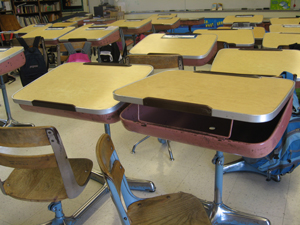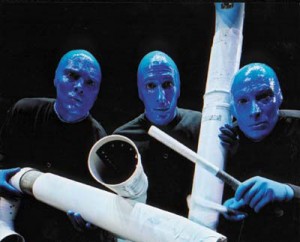Op/Education #4: Kid-Friendly Classroom Design
![]()
 When I was in first grade, my classmates and I sat in small wooden desks that were arranged in five neat rows of six. I remember my teacher, Mrs. Sherwood, gently instructing me and the other six-year-olds to sit up with our backs straight and our hands folded primly on the desktop. Being a student who took authority seriously, I sat very still and remember being praised for sitting “the right way.”
When I was in first grade, my classmates and I sat in small wooden desks that were arranged in five neat rows of six. I remember my teacher, Mrs. Sherwood, gently instructing me and the other six-year-olds to sit up with our backs straight and our hands folded primly on the desktop. Being a student who took authority seriously, I sat very still and remember being praised for sitting “the right way.”
The truth is, even though teachers tend to want kids to sit in the classroom without moving around, it goes against the nature of the child. In fact, it goes against the nature of adults, too. Just like other living creatures, people are biologically programmed for physical activity throughout the day, not just at 10-minute intervals decided by others. Whether you work in a cubicle or a coffee shop, I can bet that you get up and move around within any given hour more than kids are allowed to.
 This week’s TIME Magazine features an article called “
This week’s TIME Magazine features an article called “